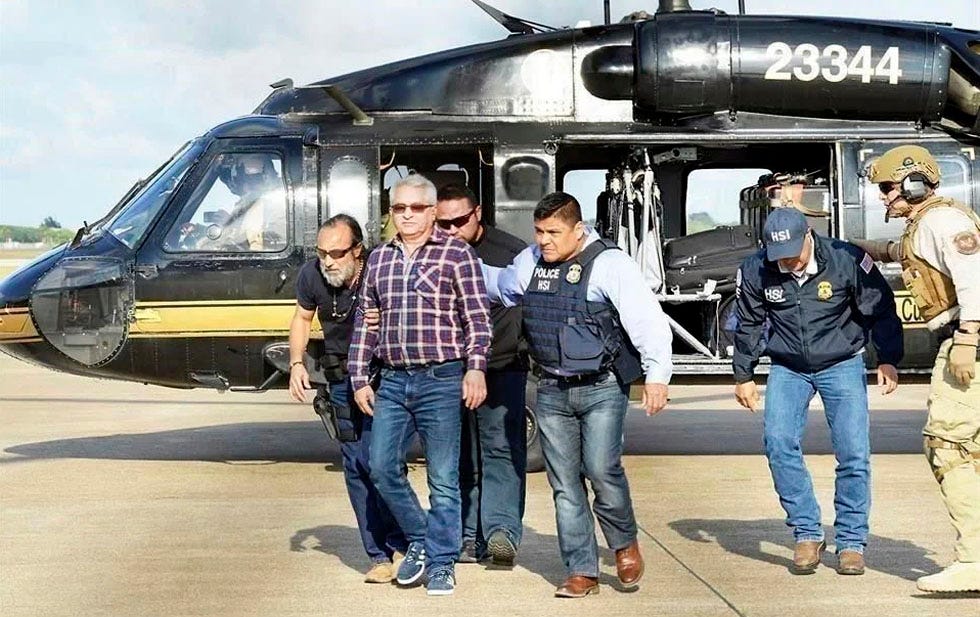South Texas judge reduces sentence of former Tamaulipas governor linked to drug trafficking
The Border Center for Journalists and Bloggers (BCJB) summarizes the main news on the border on January 9, 2024.
Tomás Jesús Yarrington Ruvalcaba, former governor of Tamaulipas and ex-member of the Institutional Revolutionary Party (PRI), will be released from a U.S. prison on November 9, 2024. His sentence has been adjusted to account for time served since his April 2017 arrest in Italy. Initially sentenced to nine years for money laundering, Yarrington's release was previously set for December 2025 but was updated due to time already served.
Following his release, Yarrington is likely to be deported to Mexico, where he faces pending criminal charges, including drug trafficking, money laundering, and bank fraud, involving over 12.7 million pesos and 450,000 dollars. His guilty plea in 2021 acknowledged accepting over 3.5 million dollars in illegal bribes for real estate purchases in the U.S. during his governorship (1999-2004). Yarrington, who also attempted to become a presidential candidate in 2005, was detained in Italy under a false name and passport and extradited to the U.S. following an agreement between Italy and Mexico. He is currently in a low-security federal prison in Camp Swift, Texas.
Correction: We wrongly mentioned that Tomás Yarrington was a presidential candidate in 2005. Yarrington publicly declared his intention to become his party's presidential candidate in 2005. His intention failed, and he was not a candidate in the 2006 presidential elections.
Alejandro Mayorkas visits Texas border to meet with officials ahead of GOP impeachment hearings
Mexico adds migration enforcement under U.S. pressure but abuse reports soar
Arizona Daily Starr.- Following discussions with U.S. officials and economic repercussions from closed U.S. ports, Mexico has intensified migration enforcement, but reports of abuse by Mexican authorities and criminal organizations have surged. Migrant families are experiencing separations and arbitrary transportation away from the U.S. border, often without official processing. The Kino Border Initiative in Nogales, Sonora, reported a significant increase in abuse cases, with extortion and robbery by Mexican officials being common complaints.
This increased enforcement, prompted by U.S. pressure, is raising concerns among humanitarian workers about migrant safety. Advocates argue that if the U.S. expects Mexico to manage migration, it should also support Mexico's shelters and humanitarian resources. However, shelters in Mexico face threats from criminal groups, leading to closures.
U.S. and Mexican officials have not detailed Mexico's migration plans, focusing instead on cracking down on smugglers and resuming deportation flights. These strategies are seen as temporary solutions, potentially endangering migrants. Instances of family separations and arbitrary transport are becoming frequent, while long-term systemic changes in U.S. policies, such as investing in the asylum system, are necessary for lasting solutions. Mexico faces challenges in controlling migration, with limited resources and a challenging border geography. Experts suggest a long-term, multi-country approach and improvements to the U.S. asylum system for effective migration management.





